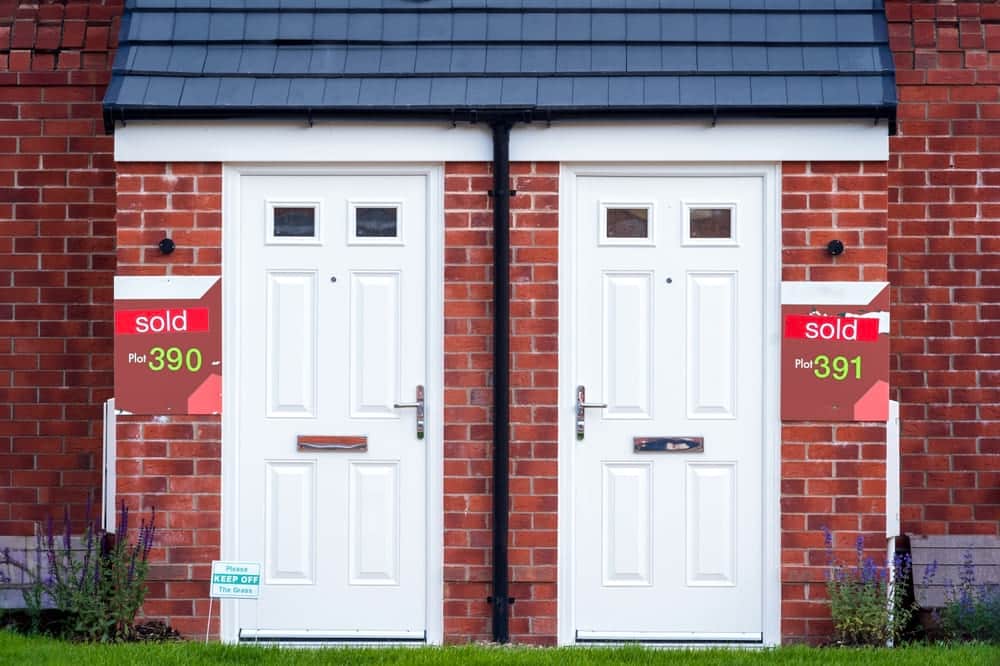If you have built up a significant amount of equity in your home, releasing some of it can be a good way of generating funds. But you need to think carefully about whether it’s right for you.
In some cases, particularly if you are struggling with debt, a sell house fast service may be a better option. We can help you do that by buying it quickly and with as little fuss as possible.
When should you consider equity release?
Equity is the amount of your property you own outright. So if you own a £200,000 house with an £80,000 mortgage you will have £120,000 equity. Releasing equity is most suited to people who own a large proportion of their home outright. This will apply to you if you’ve paid off lots of your mortgage or if the value of your property has grown significantly.
If the amount of money you want to raise is small relative to the equity you own, it could be a cost effective way to do it. Many people use equity release to fund extensions, help family members onto the housing ladder or pay off small debts.
How do you release equity?
Remortgaging is the most common way of releasing equity. This means you find a new mortgage for more than the amount you owe. So using the example above, if you remortgaged for £100,000 and your existing mortgage was £80,000, you would release £20,000 to spend as you wished.
As with all mortgages you will need to prove to a mortgage lender that you can afford repayments, they will also value the property to check it is worth what you say it is. The process can be complex and frustrating, so it might be worth speaking to a mortgage adviser.
It’s important to bear in mind that by increasing the amount you owe you will increase your monthly mortgage payments. Additionally, by borrowing more you may move into a higher load-to-value (LTV) range and be offered less favourable interest rates. For example, if you owe £120,000 on a £200,000 home and increase your mortgage to £140,000, you will only be able to access 70% LTV mortgages as opposed to the 60% LTV products you would previously have been offered.
Other things to bear in mind
If you have a mortgage and are still within the initial deal period, which usually involves a discounted interest rate, you are unlikely to be able to switch to a new one without paying an early repayment charge (ERC).
This is usually between 1% and 5% of your total mortgage value and is staggered. For example, if you have a five year deal and a 5% ERC, you would be charged 5% if you left in year one, 4% in year two and so on. This can be very expensive and may take a large chunk out of the equity you are releasing.
However, your lender may be able to give you a further advance, this involves lending you extra money that is secured against your home, but is separate from your original mortgage. This will usually come with a higher interest rate, so you need to be sure it is affordable.
If you take on a larger mortgage you are also at more risk of negative equity. This is when the value of your home drops beneath the amount you owe on your mortgage.
If you can afford your mortgage repayments and are happy to wait until prices rise again, negative equity isn’t necessarily a problem. But if you need to move you will have to make up the difference between the price you sell your home for and what you owe. It can also make it hard to remortgage your home, since providers will rarely lend more than a property is worth.
Using equity release to pay debt
Sometimes it’s a good solution to a small debt problem. Mortgages are usually cheaper than other forms of lending so replacing a credit card debt, for example, with mortgage debt could reduce your monthly outgoings.
But you may end up paying more in the long run. Although mortgage debt is cheaper it is spread over a much longer period. So paying 2% interest on a debt for 20 years may turn out to be more expensive than paying 8% over five years. You should work out your position carefully before deciding what to do. A free debt adviser will be able to help you assess the best way forward.
Other ways to deal with debt
If you are struggling with a debt, there are other ways to pay it back that might be more appropriate than increasing your mortgage payments.
For example debt management plans are an agreement between you and your creditors to pay off an amount you can afford until all your debt is repaid.
If you do not think you will be able to pay off all your debt you could consider an individual voluntary agreement. You may be asked to remortgage your home as part of this, but if that isn’t possible or it wouldn’t raise much equity you won’t have to. An IVA will usually run for five years – extended to six years if you own a home but cannot remortgage it – during which you will pay off what you can afford, after that the remaining amount will be wiped.
Both these options will affect your credit rating and your ability to borrow money in future, so consider getting advice from a free debt charity before going ahead.
Working with us
Selling your home to us is another option if your debts are becoming too difficult to manage. We can buy your home in just seven days, which means you will quickly have access to the equity in it. We also make the process as stress-free as possible by taking care of lots of the administrative hassle and costs, such as instructing and paying for solicitors.
If you’d like to chat about what we offer and how we can help you, please get in touch.




















